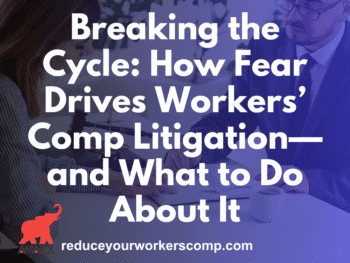The U.S. Equal Employment Opportunity Commission (EEOC) announced that Judge E. Richard Webber of the U.S. District Court for the Eastern District of Missouri has granted final approval for distribution of a $4,500,000 monetary award to 90 claimants identified during the litigation as part of an EEOC litigation settlement with Allstate Insurance Company under the Age Discrimination in Employment Act (ADEA).
In its lawsuit against the Illinois-based insurance giant, filed in October 2004, the EEOC alleged that a class of older workers at Allstate was adversely impacted based on age during a company-wide reorganization. Specifically, the EEOC charged that in the year 2000 Allstate adopted a hiring moratorium for a period of one year, or while severance benefits were being received, that applied to all its employee-sales agents who were part of its Preparing For The Future Reorganization Program. The program was part of Allstate’s reorganization from employee agents to what the company considered independent contractors.
The EEOC alleged Allstate’s policy, implemented from 2000 to 2002, had a disproportionate impact on employees over the age of 40 because more than 90% of the agents subjected to the hiring moratorium were 40 years of age or older. Allstate denied its hiring moratorium violated the ADEA. In 2005, the U.S. Supreme Court held in Smith v. City of Jackson that a facially neutral policy (such as Allstate’s hiring moratorium) which disproportionately affects those age 40 and over will violate the ADEA unless the policy is based on a reasonable factor other than age. This case was one of the first to apply the holding in City of Jackson, although no decision was made whether or not Allstate’s policy violated the ADEA.
“We at the EEOC are now bringing more and more lawsuits like this one to challenge company-wide policies or practices which discriminate against a large number of workers,” said EEOC Acting Chairman Stuart Ishimaru. “Make no mistake: As this settlement shows, we will insist on significant compensation and meaningful injunctive relief to resolve these cases.”
As provided in the Stipulated Order resolving the EEOC litigation (Civil Action No. 4:04CV01359 ERW), Allstate will pay former older employees who sought employment — or would have sought employment with the company in the absence of its policy — a total of $4.5 million to be divided among the class via a settlement fund. The order also provides for discrimination prevention training, posting of notices, reporting and monitoring, and other relief designed to educate Allstate managers in order to prevent future ADEA violations. (workersxzcompxzkit)
EEOC Regional Attorney Barbara Seely of the agency’s St. Louis District Office, handling the litigation, said, “Regardless of age, these sales agents would have made good employees in other positions for Allstate had it not been for the company’s no-rehire policy, which we believe had an adverse impact on older workers. City of Jackson makes clear that even though an employer may not intentionally discriminate because of an employee’s age, it can still violate the ADEA if it has a policy that has a disproportionate impact on employees age 40 and over.”
Author Robert Elliott, executive vice president, Amaxx Risks Solutions, Inc. has worked successfully for 20 years with many industries to reduce Workers’ Compensation costs, including airlines, health care, manufacturing, printing/publishing, pharmaceuticals, retail, hospitality and manufacturing. He can be contacted at: Robert_Elliott@ReduceYourWorkersComp.com or 860-553-6604.
WC Books: http://www.reduceyourworkerscomp.com/workers-comp-books-manuals.php
TD Calculator: www.ReduceYourWorkersComp.com/transitional-duty-cost-calculator.php
WC Calculator: http://www.reduceyourworkerscomp.com/calculator.php
Do not use this information without independent verification. All state laws vary. You should consult with your insurance broker or agent about workers’ comp issues.
©2009 Amaxx Risk Solutions, Inc. All rights reserved under International Copyright Law. If you would like permission to reprint this material, contact Info@WorkersCompKit.com



























